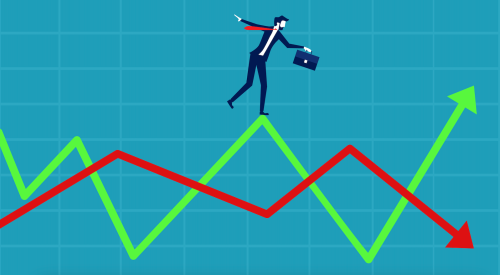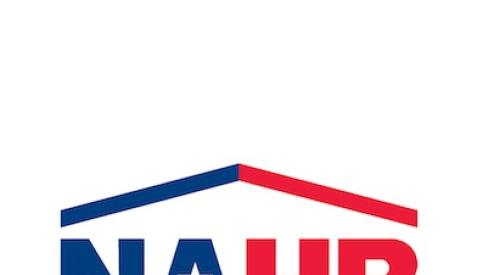| Berson’s forecast should give builders a reason to smile. |
Through the first quarter of 2001, the new home market remained remarkably strong - posting annualized unit sales only slightly lower than the all-time high recorded in 1999. This is unusual because every preceding downturn in the overall economy has come with a certain measure of pain in the housing market. That is perhaps why builders, despite the brisk sales, are quietly preparing for the other economic shoe to drop.
David W. Berson, chief economist for Fannie Mae, the largest backer of mortgages in the United States, is one of a handful of elite economists who have raised the study of housing markets to precise levels. He says the new home market remains healthy and the outlook for builders remains good.
PB: What is the chance that home builders can ride out this general slowdown in the economy without much difficulty?
Berson: It is interesting. There has been a sharp slowdown in the economy, but it is hard to see the slowdown in housing. New home sales in the first quarter of this year were stronger than any quarter ever in U.S. history. And usually in the first quarter we sell fewer new homes because of weather. So the real question is if the economy stays slow, or it slows further, will housing be affected?
I think it is unlikely that we are going to see a big drop in housing this year. Typically when the economy slows substantially it does so because the Federal Reserve has tightened monetary policy to fight inflation and interest rates and mortgage rates are very high. We entered this period with low mortgage rates, so the housing market does not have to wait for rates to come down to help spur sales. So even if the housing market slows later this year, the decline is not likely to be severe - certainly not comparable to the types of slowdowns we have seen previously.
What specifically does your forecast call for in the next six months and the first part of next year?
We are looking for new home sales this year to be about 895,000 units. This is slightly below last year, which was 904,000 units, a drop of 1%. The slowdown in home sales should lead to a modest slowdown in housing starts. We are looking for single-family starts this year to be 1.22 million units, down from 1.26 million units last year, roughly in line with the fall in new home sales; 1.22 million units in a down housing year is pretty strong. It is hard to call 2001 a bad year for the housing market.
What is the risk that a credit crunch could hurt housing?
The Federal Reserve’s Bank Lending Officer Survey shows that banks have tightened credit standards some, although not in a Draconian way. But a survey by the National Federation of Independent Business - whose members are some smaller builders - shows no difficulty in getting credit. I don’t think it is very serious at this point.
Is the energy situation such a significant risk that it could bring us in the direction of a recession?
The hike in energy prices over the last year is worrisome. Last year, the Federal Reserve was attempting to slow the economy into what we would call a soft landing and did not count on this big spike in energy prices. We had a similar attempt by the Fed to create a soft landing back in 1990, and unfortunately we had the Iraqi invasion of Kuwait and a big run-up in energy prices then, knocking us into a recession. I think a big part of the reason why the Fed had been so aggressive in its easing in interest rates this year is the realization that the same sort of thing could happen this year. With an economy slowed to a soft landing, it could stumble more because of an energy shock.
At this point it looks like we will avoid a recession, but if energy prices move still higher, it is certainly one of the things that could help push the economy into recession. I still think the odds of recession are much less than 50%; I would say that they are probably around 35%.
Are you spotting any regional trends that are important to mention?
Some parts of the country that are weaker than others. In part it comes from manufacturing being very weak right now. While the entire U.S. economy may not be in a recession, the manufacturing industry is. States heavily influenced by automaking and high-tech manufacturing should have some weakness in the second half of the year. California is a concern because of energy prices, although now the overall California economy appears to be expanding reasonably well.
What variables will hold sway over housing in the next few months?
One of the most important indicators is job growth. What often lie behind consumer confidence are your job and income-earning prospects. If firms are laying people off and if job growth is negative, then confidence will be negatively affected.
The other thing that affects the housing market strongly is mortgage rates. So while we look at the change and movement in mortgage rates, the level of interest rates is more important.
Are demographics and immigration sufficient reason to believe that builders could be on a steady path upward?
The underlying demographics for housing are positive. We had very strong immigration in both the ’80s and ’90s, and most immigrants can’t afford to purchase a home when they first come to the United States. So it is good for multifamily housing. But eventually most buy homes. In fact, after 20 years homeownership rates among immigrants are higher than nonimmigrants.
In addition, we have the baby boom cohort moving into age brackets that traditionally have the highest ownership rates. Homeownership rates don’t peak until between age 65 and 70. Most people are shocked when I say that. They think it must be age 50. The oldest baby boomers this year are age 55. So they are more than 10 years away from their peak homeownership years. The youngest baby boomers are 37 this year. They are 30 years away from their peak homeownership years. Over the coming decade, as the baby boomers age, an increasing number of those that have not bought their first homes will buy.
This combination does not mean that housing can’t go down. If the overall economy goes into a recession, housing will be hurt, but the strong underlying demographic demand implies that downturns in housing should be less severe.












